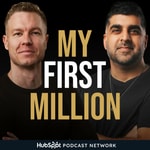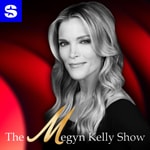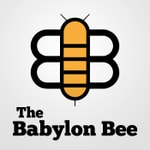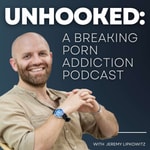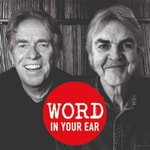Political Beats – Details, episodes & analysis
Podcast details
Technical and general information from the podcast's RSS feed.
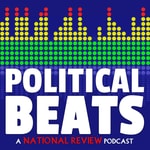
Political Beats
National Review
Frequency: 1 episode/19d. Total Eps: 149

Recent rankings
Latest chart positions across Apple Podcasts and Spotify rankings.
Apple Podcasts
🇺🇸 USA - musicHistory
29/07/2025#36🇺🇸 USA - musicHistory
28/07/2025#28🇺🇸 USA - musicHistory
27/07/2025#30🇫🇷 France - musicHistory
27/07/2025#99🇺🇸 USA - musicHistory
26/07/2025#28🇺🇸 USA - musicHistory
25/07/2025#26🇺🇸 USA - musicHistory
24/07/2025#41🇺🇸 USA - musicHistory
23/07/2025#29🇺🇸 USA - musicHistory
22/07/2025#79🇨🇦 Canada - musicHistory
21/07/2025#97
Spotify
No recent rankings available
Shared links between episodes and podcasts
Links found in episode descriptions and other podcasts that share them.
See all- https://twitter.com/EsotericCD
128 shares
- https://twitter.com/ScotBertram
117 shares
- https://twitter.com/charlescwcooke
11 shares
- https://www.businessinsider.com/
29 shares
- https://ricochet.com/membership/
16 shares
- http://wethefifth.com/
14 shares
RSS feed quality and score
Technical evaluation of the podcast's RSS feed quality and structure.
See allScore global : 63%
Publication history
Monthly episode publishing history over the past years.
Very Special Episode: Most Essential/Necessary Compilations [137]
Episode 138
lundi 19 août 2024 • Duration 02:28:12
Introducing the Band:
Your hosts Scot Bertram (@ScotBertram) and Jeff Blehar (@EsotericCD) with . . . no guest at all! With Jeff moving his belongings to a new abode while also covering the RNC and DNC for National Review and Scot's vacation schedule creating another hurdle, we felt it was time to break the glass on the window marked "VERY SPECIAL EPISODE."
For those relatively new around here, we've done two VSEs in the past, both when schedules were getting out of control. One compiled our Best Cover Songs and the other listed our Best Soundtracks. In short, some stuff we wouldn't get to cover in a different way. And, by the way, these are pulled off without a guest.
Thinking in that direction for a theme, we present to you the Most Essential/Necessary Compilations. For Scot, this meant one thing: artists/bands who have produced basically no complete albums worth consideration of a full Political Beats episode, but who have a Greatest Hits/Best Of package that contains absolutely everything you need of the singles. Some people really hate buying hits packages because they want to have the artistic statement made by the full album. But you can’t deny there are some collections that are just perfect in their brevity/simplicity. All killer, no garbage album filler to worry about.
On the other hand, Jeff thought about this a little differently: What compilations helped introduce him to the larger work of a band? And, being a post-punk guy, which collections helped bind together swaths of material you can't find elsewhere?
In the end, as usual, you get two slightly different perspectives on the show. You can decide which one is superior.
Episode 136: Brad Birzer / Yes [Part 2]
Episode 137
lundi 1 juillet 2024 • Duration 02:43:10
Introducing the Band:
Your hosts Scot Bertram (@ScotBertram) and Jeff Blehar (@EsotericCD) are with guest Brad Birzer. Brad is the Russell Amos Kirk Chair in American Studies and Professor of History at Hillsdale College. He is also the co-founder of and senior contributor at The Imaginative Conservative, and the author of a number of books, including Neil Peart: Cultural (Re)Percussions. Find him online at bradbirzer.com or @bradleybirzer on Twitter.
Brad’s Music Pick: Yes
Well, the buses outside don't add much weight to the story in our heads we began in our last episode of Political Beats, so we're thinking we should go and write a punchline; thus, welcome to part two of our discussion of the great progressive rock band Yes, wherein we discuss their career from 1974's Relayer onward to the present day. (Be forewarned -- we pick and choose after the debacle of Union (1991). Fondly remembered: Talk, Keys To Ascension, Magnification and Fly From Here. Not so fondly remembered: erm, Open Your Eyes.)
I could offer more prelude than that, but this is one episode where the music will do vastly more explaining than any written exegesis; Yes bounced back after Tales from Topographic Oceans with an album even more abstruse and outwardly difficult, yet light years more compelling. From that point onward and despite countless personnel changes -- up to and including swapping the "Video Killed the Radio Star" guys straight into their band -- the group maintained its unique sound and creative voice throughout the second half of the Seventies in a series of albums that age like casked scotch. (Check out the vigorous defenses of Tormato and Drama ye shall find herein!) Then the group collapsed after a disastrous 1980 tour and seemed to be over . . . until a South African guitarist/vocalist/songwriter named Trevor Rabin entered the picture.
All this and much, much more is covered on an episode of Political Beats that spans from the mid Seventies all the way to the late Eighties without once pausing for breath. Afterwards, we take a breather here and there, but for now? Tempus fugit, my friends, so you should click, because we're off to the races, going for the one.
Episode 127: Eric Kohn / Huey Lewis & the News
Episode 128
lundi 2 octobre 2023 • Duration 03:07:36
Introducing the Band:
Your hosts Scot Bertram (@ScotBertram) and Jeff Blehar (@EsotericCD) are joined by guest Eric Kohn. Eric is the Director of Marketing & Communications at the Acton Institute. Check him out on Twitter at @iEricKohn.
Eric’s Music Pick: Huey Lewis & the News
Do you believe in miracles? Yes! After years of lobbying, Jeff has proven that anyone will fold, given enough time and pressure. Here is the Huey Lewis & the News episode of Political Beats.
Those of you with us for a while will know that the band is a favorite of Scot's while Jeff previously has taken any opportunity to vow never to cover Huey and the boys on the show. Well, recently he had a change of heart (Track One, Picture This) and we wasted no time in finding a guest. Did we end up talking for three hours about Huey Lewis & the News? Of course we did. Did we change Jeff's mind? Listen and find out.
Scot’s love of the band started at a young age, and much of his knowledge of the early story of the band’s history comes from a mass-market paperback that he still has to this day. Huey Lewis & the News: A Biography is a 142-page chronicle of the rise of the band and its origins on the San Francisco music scene. It’s out of print, obviously, but check your local used bookstore for a copy.
Huey Lewis & the News essentially was the merger of two big local Bay area bands -- Clover and Soundhole. Huey and keyboardist Sean Hopper played in the former, while drummer Bill Gibson, saxophonist/guitarist Johnny Colla, and bassist Mario Cipollina in the latter. Clover (sans Huey) were perhaps best known for being Elvis Costello's back-up band on My Aim Is True.
The band then picked up a 21-year-old kid in 1979, Chris Hayes, to play lead guitar and were off. The next year, 1980, brought the little-noticed self-titled debut. Here's the thing: It's quite good! This album, and the early sound of the band, is the commercial follow-through on the wonderful music made by the pub rock artists of the U.K. This record is heavier on Mario's bass than later entries, but those trademark backing vocals are there from the start. It didn't sell. At all.
The next album would be make or break. Huey's face alone is on the cover. Harmonies are tighter. Little did they know they had an ace in the hole: a song written by Mutt Lange. "Do You Believe in Love" would explode to #7 on the charts. The band had a hit. A follow-up would be tougher. Three other singles from Picture This failed to break #36, though one, “Workin’ for a Livin’,” has endured as a blue-collar anthem.
The band went back to work with a taste of success and a thirst for more. The mission for the next album was simple: every song a hit. Easy, right? With Sports, they pretty much pulled it off. You know virtually every song on this album, including “I Want a New Drug,” “The Heart of Rock and Roll,” “If This Is It,” and more. There was no thematic goal other than producing hits. Synths, drum machines, massive hooks -- whatever it took. Outside writers? Sure! A strength of the band was taking other's material and making it sound like their own, as they did on “Heart and Soul” and “Walking On a Thin Line.”
Sports was a monster. Massive headlining tours followed. Two major projects before the next album would drop. First, Huey would take a lead vocal spot in "We Are the World,” filling in for Prince. Second, some work on a little film called Back to the Future and the band’s first #1 hit in “The Power of Love.”
Huey Lewis & the News is on top of the world. But 1986 is approaching and a new album is due soon. One problem: No one hears a single. One of the engineers calls up Chris Hayes at home and says, "Chris, we need a hit."
"Stuck With You" was what he came up with, and it was the lead single for Fore!, which would also hit #1 & sell 3 million+ copies. That said, Fore! is a bit of an odd duck. Fully half the songs were from outside writers, including the album's other #1 single, “Jacob’s Ladder” (written by the Hornsby brothers)
Next? Well, whatever the band wanted. And what they wanted was not necessarily commercial in nature. A socially conscious effort full of eclectic musical themes, Small World. As far as I've read, the band loves this album. They got to stretch their legs as musicians. They had earned the right to make a project of their choosing. The record-buying public was not impressed. Small World barely scraped 1 million units in sales. The band did have one last bullet to fire at the charts. “Perfect World,” a song written by Alex Call, a former Clover bandmate of Huey and Sean, hit #3 and clearly sits aside their best.
Afterward, the band had some well-earned time off. In the time span, though, the rock world was changing quickly. Huey & company dropped the weirdness of the last album and returned to the blueprint -- rock, R&B, a love song, and a tune by Mutt Lange. All on Hard At Play. There would not be another album of new material for ten years. Four Chords and Several Years Ago, an album of 50s-era covers, came in 1994.
Plan B, an album of new material, arrived in 2001, followed by Soulsville, a Stax covers album, and finally 2020’s Weather. The last record was released following Huey’s diagnosis of Ménière's disease, an inner-ear disorder, which means he can no longer hear music frequencies or hold vocal pitches. The result is no touring and no more new music from the band.
It's sometimes hard to hear Huey Lewis & the News on the radio. Living on that weird line between rock and pop in the 1980s means there's not a great format for those songs now. It's a catalog well worth further inspection, though. You won't regret spending three hours with us and the band.
Episode 38: Charles C. W. Cooke / The Beatles [Part 2]
Episode 38
lundi 16 juillet 2018 • Duration 03:14:11
Scot and Jeff discuss The Beatles with Charles C. W. Cooke, editor of NationalReview.com and the author of The Conservatarian Manifesto. Part 2 of 2.
Introducing the Band:
Your hosts Scot Bertram (@ScotBertram) and Jeff Blehar (@EsotericCD) with guest Charles C. W. Cooke. He is the editor of NationalReview.com and the author of The Conservatarian Manifesto. Follow him on Twitter at @charlescwcooke
Charles’s Music Pick: The Beatles:
Charles returns to finish our lengthy conversation about the Fab Four. Part Two begins with the “Paperback Writer” / “Rain” single and takes us through Abbey Road. Yes, we discuss the albums in the order they were recorded, so Let It Be comes first. An enormous amount of music means we crack the three-hour mark in length. Listener be warned.
Episode 37: Charles C. W. Cooke / The Beatles [Part 1]
Episode 37
lundi 9 juillet 2018 • Duration 02:53:13
Scot and Jeff discuss The Beatles with Charles C. W. Cooke.
Introducing the Band
Your hosts Scot Bertram (@ScotBertram) and Jeff Blehar (@EsotericCD) with guest Charles C. W. Cooke. He is the editor of NationalReview.com and the author of The Conservatarian Manifesto.
Charles’s Music Pick: The Beatles
There’s this band you might have heard of called The Beatles. It’s Paul McCartney’s old group. Anyway, if you’re not aware of them, or their music, Scot, Jeff, and Charles turn the spotlight on this foursome that broke up nearly 50 years ago and then slowly faded from the public’s consciousness. Oh, come on! It’s The Beatles! John. Paul. George, Ringo. We’re going to spend two episodes just scratching the surface of their catalog. Part One takes us through Rubber Soul and the double A-side single “We Can Work It Out” / “Day Tripper”.
Episode 36: Christopher J. Scalia / Cheap Trick
Episode 36
lundi 18 juin 2018 • Duration 02:39:25
Introducing the Band
Your hosts Scot Bertram (@ScotBertram) and Jeff Blehar (@EsotericCD) with guest Christopher Scalia. He is co-editor of Scalia Speaks: Reflections on Law, Faith, and Life Well Lived, the New York Times best-selling collection of his late father’s speeches. He works at a public relations firm in Alexandria, VA, and has written reviews and political commentary for the Washington Post, NRO, Weekly Standard, Wall Street Journal, and elsewhere. Follow him on Twitter at @cjscalia.
Chris’s Music Pick: Cheap Trick
Scot, Jeff, and Chris have not forgotten the magnetism of Robin Zander, the charisma of Rick Nielsen, or, most importantly, the tunes! We celebrate the music and career of Cheap Trick, power-pop masters and occasional hard rock purveyors. Join us for the ups (the 70s), the downs (the 80s), and the highly-respectable late-career albums. One of us even tries to defend “The Flame.”
Episode 35: Jon Gabriel / New Order
Episode 35
lundi 28 mai 2018 • Duration 02:20:26
Introducing the Band
Your hosts Scot Bertram (@ScotBertram) and Jeff Blehar (@EsotericCD) with guest Jon Gabriel, co-host of the Conservatarians podcast and editor-in-chief of Ricochet. Follow Jon Twitter at @exjon.
Jon’s Music Pick: New Order
This week the gang gets pumped full of drugs as they discuss New Order, the rock legends who emerged from the ashes of Joy Division to spend an entire decade shaping the sound of modern dance music.
Episode 34: Mark Joseph Stern / The Velvet Underground
Episode 34
lundi 14 mai 2018 • Duration 01:50:19
Scot and Jeff discuss The Velvet Underground with Mark Joseph Stern of Slate.
Introducing the Band
Your hosts Scot Bertram (@ScotBertram) and Jeff Blehar (@EsotericCD) with guest Mark Joseph Stern covers courts and the law for Slate. Follow him on Twitter at @mjs_DC, and find more here.
Mark’s Music Pick: The Velvet Underground
Scot, Jeff, and Mark find their respective mainlines and nearly overdose on a large helping of The Velvet Underground. Widely respected as one of the most influential bands of all time, The VU has a short but distinctive discography. As Brian Eno said, while their debut album sold only 30,000 copies in its early years, everyone who bought one of those 30,000 copies started a band.
Episode 33: Kevin Madden / Wilco
Episode 33
lundi 7 mai 2018 • Duration 02:18:30
Scot and Jeff talk to Kevin Madden about Wilco.
Introducing the Band
Your hosts Scot Bertram (@ScotBertram) and Jeff Blehar (@EsotericCD) with guest Kevin Madden, Republican strategist, CNN Commentator and former advisor to President George W. Bush, Gov. Mitt Romney, Republican House Leaders John Boehner and Tom DeLay.” Follow Kevin on Twitter at @KevinMaddenDC.
Kevin’s Music Pick: Wilco
This week the gang gets a shot in the arm as they celebrate Wilco, one of the great genre-transcending American groups of the past quarter century. This is a band that had a cult and critical following long before they emerged into wider prominence in the 21st century, and co-host Scot was there from the start: Wilco is one of the bands nearest and dearest to him in his entire life. Kevin tells the story of sitting in Yonkers city hall during his years as an aide to the city council president and having his head turned around by hearing a song on the radio: “California Stars,” which set him on the path to lifelong fandom. Jeff tells a more familiar story for many, one of finding Wilco due to the hype surrounding Yankee Hotel Foxtrot and being mildly perplexed at first until the eventual discovery of Summerteeth clicked everything into place for him.
Too Far Apart: Uncle Tupelo and the origins of Wilco
As much as the gang would have loved to, there just wasn’t any time to seriously discuss Uncle Tupelo, the groundbreaking band from southern Illinois led by Jay Farrar that formed in 1989 and ended up defining the entire subgenre of alt-country. Instead, Scot gives a brief rundown of their career and points out that by far the more important thing, as far as the present episode is concerned, is that Uncle Tupelo also happened to contain a second key member in the quiet, retiring bassist Jeff Tweedy, who began writing more and more songs as the band’s career progressed. This led to incurable friction with Farrar, and when Tupelo eventually collapsed and Farrar quit, Tweedy took the rest of the band with him and renamed it Wilco. Farrar began a new band named Son Volt, and for the next two records, a ‘battle of the bands’ (as Kevin calls it) was on between Son Volt and Wilco.
The overwhelming critical consensus is that Farrar won round one in a knock-out with Son Volt’s magnificent debut Trace; Wilco’s 1995 debut A.M. was seen by most as an afterthought — a middling continuation of the Uncle Tupelo sound — and proof that the real magic in the band came from Jay Farrar. In retrospect we now know that not to be the case, but the gang argues that A.M. is itself an underrated record in its own right, far too quickly dismissed by critics and fans (and even the band) for failing to advance much on Uncle Tupelo’s original sound. Scot and Kevin praise the guitarwork of Brian Henneman (on temporary loan from the Bottle Rockets) in particular, and note that the embryonic “Tweedy style” of lyrical introversion is found in so many of the highlights of this record, like “Box Full Of Letters” and “Should’ve Been In Love.”
Misunderstood: Jay Bennett and Being There
All talk of Wilco as an also-ran in the alt-country scene immediately ended with their second album, 1996’s sprawling 2CD masterpiece Being There. And yet with this record Tweedy was already declaring, on songs such as “Misunderstood” and “Sunken Treasure” (which, as Jeff notes, tellingly open disc 1 and disc 2 respectively), that Wilco was not content to be a mere alt-country act anymore. The impetus behind this shift was Tweedy’s for sure–all of the songs on this LP are solo songwriting credits–but a major reason for the success of Wilco’s sudden musical complexity must be laid at the feet of their newest member, Jay Bennett. Originally hired to be the band’s lead guitarist, Bennett immediately revealed a passion for piano and keyboards and used his skill with them to bathe nearly every song on Being There with graceful and haunting coloristic touches. From “Red-Eyed And Blue” (which Jeff is passionate about) to “Outta Mind (Outta Site)” (which sounds more like a Beach Boys Christmas album outtake than anything else), Bennett’s impact as a performer and an arranger are instantly felt, and his creative contributions to the band would rapidly rise to the level of a near-even collaboration with Tweedy on subsequent records. All three of the gang are effusive in their praise of Being There, a record which finds Wilco stepping into a much larger world of art-rock while still keeping its feet solidly in the world of country balladry and sprightly rockers that had been the Uncle Tupelo calling card. What impresses even more than the variety of this record is its consistency: as a double album with 18 songs, it should drag and yet there few if any perceptible weak spots.
A Shot in the Arm: Mermaid Avenue and Summerteeth
On tour, Wilco ran into venerable UK political guitar-folkie Billy Bragg and predictably hit it off. Thus, when Bragg was approached by Woody Guthrie’s daughter with the opportunity to work with a huge tranche of Woody’s unpublished lyrics and write new music to it, he decided to recruit Wilco to collaborate with him and bring American roots authenticity to the project. The result was an unalloyed triumph: the gang argues that two volumes of Mermaid Avenue are no mere side-project (though neither Scot nor Jeff have much time for the Billy Bragg material on these two discs), but a key part of Wilco’s discography and the connective material that bridges the gap both between Being There and Summerteeth (in the case of Vol. 1) and Summerteeth and Yankee Hotel Foxtrot (in the case of Vol. 2). Jeff argues that Tweedy and Bennett were liberated by having such eloquent texts to craft music around, and that the result are songs that often times feel ‘more Wilco than Wilco’, particularly on gems like “California Stars” (again, one of Kevin’s favorites), “At My Window Sad And Lonely,” “One By One,” “Airline To Heaven,” and the epic “Remember The Mountain Bed.” At the time of its release, Mermaid Avenue was celebrated by critics as a stunning reassessment and recontextualization of Woody Guthrie’s art; in retrospect, it is also obvious that it is a key link in the chain demonstrating the process by which Tweedy and Bennett were reassessing and recontextualizing their own music with Wilco.
The results of that reassessment are, by universal agreement between Jeff, Scot, and Kevin, the true masterpiece of Wilco’s career, the glorious Summerteeth (1999). Fans whose last checkpoint for Wilco was (the wonderful, but still largely rooted in well-worn alt-country sounds) Being There must have been completely shocked by the mutagenic growth on display with Summerteeth, a sonically complex, glossy, almost summery-sounding album of art-rock, art-pop, and weirdly crabbed balladry. Scot gets emotional talking about this album, as it is a part of the fabric of his young life – he remembers the first time he heard and spun “I’m Always In Love” on his college radio station, blown away by the complete shift in style after Being There. Jeff is fascinated by the contrast between the vibrantly arranged and produced music (he affectionately calls it the “Jay Bennett goofy synthesizer album”) and the naggingly recurrent darkness of the lyrics: Tweedy is singing about death, doubt, inability to communicate, dashed hopes, the frustration of unrequited faith, and broken relationships, but you would have to listen very carefully to find that in, say, the ethereally pure beauty of “A Shot In The Arm,” which may just be the greatest song of their career. The gang spends a full twenty minutes rhapsodizing about Summerteeth, from “Can’t Stand It” all the way to “Candyfloss,” and all we can say to you is: please listen to this album.
The Late Greats: From Yankee Hotel Foxtrot to A Ghost Is Born
This brings the gang to the great white whale of the Wilco discography, Yankee Hotel Foxtrot (2001). As Wilco’s most famous and widely-praised album, and a record with not one but two compelling narratives surrounding it, its place in the critical firmament of 21st-century rock is fixed. Nevertheless, Scot, Kevin and Jeff are all in agreement that YHF is at least somewhat overrated, and none of them rate it as the band’s best work (they are unanimous in choosing Summerteeth instead). Jeff is the most direct in his critique, arguing that this record and the next witness Jeff Tweedy at his (intentionally, one presumes) slackest in terms of vocal approach and commitment to melody. Even on the nominally uptempo numbers on this record, Tweedy’s singing is slack, seemingly stoned, and delivered with a whispery flat affect that betrays hints of deeper demons underneath the surface. Meanwhile much of the music (e.g. “I Am Trying To Break Your Heart,” “Radio Cure,” “I’m The Man Who Loves You”) relies far more on the interest of their backing tracks–specifically the tape loops and various percussive cacophonies that wind in and out of the songs–than they do on the melodic interest of the writing.
That said, these criticisms feel small compared to the breathtaking scope of Yankee Hotel Foxtrot, an album as purely consistent in tone and mood as any in Wilco’s career. Kevin cites to “Ashes Of American Flags” in particular as representative of the whole of YHF: a ghostly, almost evanescent melody (Jeff isn’t even quite sure it’s a ‘song’ per se), a descent into noisy chaos at the end of the track, but an overall atmosphere of aching beauty and grandeur. Jeff prefers the more lyrically direct material like the wistfully nostalgic “Heavy Metal Drummer” and the lyrical “Poor Places,” while Scot declares that “Pot Kettle Black” is the album’s masterpiece and dares all comers to fight him on the matter.
It’s impossible to discuss YHF without discussing the documentary I Am Trying To Break Your Heart, filmed during these sessions. It caught the band in the midst of twin crises. First up was their record-label disaster: at work on what would become the band’s universally-acknowledged masterpiece, Wilco found the final product rejected by their label Reprise, and dropped as recording artists. (The resulting outrage from critics, who had been given copies of YHF by the band’s manager, created a huge backlash and secured them a new deal with a different label in short order…and also generated enough buzz to make the record Wilco’s first real chart success.) More importantly, the cameras documented the painful dissolution of the relationship between Jeff Tweedy and Jay Bennett; Bennett was a full participant in the sessions and co-wrote most of the album’s songs, but would be fired by Tweedy immediately afterwards, and the film captures their ongoing communication breakdown in a particularly poignant way. Scot insists that when Jay Bennett left Wilco he took a certain amount of their special magic with him, but Jeff isn’t quite so sure…he thinks Tweedy was being driven by different demons during this era.
Just exactly what that was became painfully apparent by the time of 2004’s A Ghost Is Born: the record’s release was delayed at the last second because Tweedy needed to check into rehab to rid himself of an addiction to prescription painkillers acquired over the last several years of self-medicating to ward off panic attacks, migraines, and clinical depression. A Ghost Is Born is the sound of that exhaustion, and while Scot disdains it, Jeff rates it highly, seeing in its exhausted and paranoid tones and outre experiments the last truly fearlessly experimental record of Wilco’s career. Sure, nobody needs to hear the hopelessly misbegotten “Less Than You Think” (a middling folk song married to 12 minutes of boring tuneless noise serving no worthy end), but drug-exhausted chance-taking pays off wildly elsewhere on songs like “At Least That’s What You Said”–whose “clever song + guitar freakout” format would establish a template Tweedy carried forward on the rest of their career–and the singular “Spiders (Kidsmoke),” an out-of-nowhere tribute to Krautrock (the specific reference points are Kraftwerk and especially Neu!) that sees Wilco pushing out into genres they had never before even hinted at attempting and succeeding wildly.
P.S. None of us can really figure out what “Muzzle Of Bees” is supposed to be about either. You are not alone.
On And On And On: From Sky Blue Sky to Schmilco, and the Present Day
Jeff Tweedy’s post-rehab career with Wilco encompasses a full five albums — fully half of their studio discography — so it may seem presumptuous to place all of these under the same heading. And yet, on another level the grouping feels correct: the healthy, happy, sober Jeff Tweedy made music with Wilco that felt fundamentally different from the more tortured, crabbed music of their career up to A Ghost Is Born. Wilco loses a significant amount of their weirdness and settles into a series of well-written, well-produced albums full of quirky tunes and impressive guitar solos that nevertheless lack the same sense of danger as their early career (this is, not without reason, sometimes referred to by critics as the “dad-rock” phase of Wilco’s career). Dad-rock or not, Kevin insists on the quality of 2006’s Sky Blue Sky (the first record released by the stable present-day lineup of Wilco) and rates it among their finest work. Scot likes this record a lot more than he thought he did back in the day, and cites “Side With The Seeds” in particular as a standout, while Jeff goes with the haunting album closer “On And On And On,” an immensely moving song about mortality.
With “Wilco (the song)” off of Wilco (2009) the band unexpectedly scores a rock ‘trifecta’ (album/song/band all of the same name, e.g. Bad Company or Talk Talk), but aside from the title track (which Kevin notes is a perniciously listenable earworm), the gang agrees that this is a much more unfocused record than the previous one. Still, this song is as professional and assuredly listenable as all of Wilco’s late period records, with highlights like “One Wing” (Jeff’s pick), “You And I” (Kevin’s favorite) and the disguised Civil War tale of “I’ll Fight” (Scot’s favorite, and one of his five favorite Wilco songs ever). Unfortunately, The Whole Love (2011) is as close as Wilco comes to sounding generic in their career, with only “Art Of Almost” standing out. (Jeff damns it thus: “Very professional. Very tasteful. Very likable. Dad-rock.”)
That leads us to the present day and the one-two punch of Star Wars (2015) and Schmilco (2016), which were recorded at the same sessions and then divided after the fact into two very different sounding albums: Star Wars (yes, Tweedy named it after one of the most famous movies of all time–for absolutely no reason whatsoever–and then put a painting of a cat on the cover), released for free online as a surprise record, is by gang consensus the better of the two, a left turn into harder rock sounds than either the sedate The Whole Love or the unrepentantly folky Schmilco. Scot likes Star Wars quite a bit (its tightness brevity is a real plus), in particular the groove of “Random Name Generator” and “Taste The Ceiling.” Jeff and Kevin both agree (Kevin shouts out to “You Satellite”), and all are agreed that the soft Schmilco is the weaker half of these sessions, barely rising above a whisper (though “Cry All Day” is a fine song).
Finale
Kevin, Scot, and Jeff each name their two key albums and five key songs by Wilco.
Episode 32: Ellen Carmichael / Dire Straits
Episode 32
lundi 23 avril 2018 • Duration 01:53:09
Scot and Jeff talk to Ellen Carmichael about Dire Straits.
Introducing the Band
Your hosts Scot Bertram (@ScotBertram) and Jeff Blehar (@EsotericCD) with guest Ellen Carmichael, president of The Lafayette Company and contributor to National Review and Forbes . Follow her on Twitter at @ellencarmichael, and find more here.
Ellen’s Music Pick: Dire Straits
Creators of one of the most iconic guitar solos (“Sultans of Swing”) and music videos (“Money For Nothing”) of all time, Dire Straits recently was inducted into the Rock and Roll Hall of Fame. The distinctive finger-picking guitar style and songwriting of Mark Knopfler helped drive the band to tens of millions of record sales worldwide.
